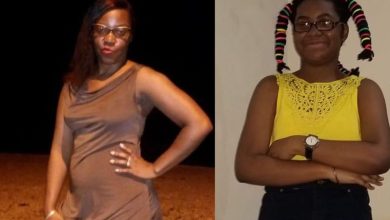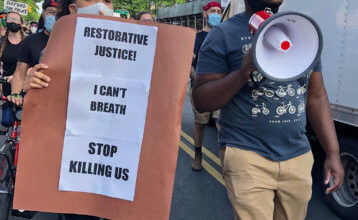Haitian Heritage Month reflects Caribbean history

Haitian Heritage Month is in full swing.
Evident since May 1, from sightings at street dancing sessions in Little Haiti, Miami, Florida, inside dance studios in Montreal, Canada and throughout creole clubs here, Boston, Massachusetts and Chicago, Illinois where flouncy, wide, skirts have been whirling and twirling traditional folkloric culture and heritage native to Haiti.
Haitian Heritage Month was first designated in the United States in Boston, Massachusetts and has since been celebrated across the nation for more than two decades.
Here, Assemblymember Rodneyse Bichotte Hermelyn — the daughter of Haitian immigrants — and chair of the Brooklyn Democratic Party introduced a resolution to formally designate May, Haitian Heritage Month in New York State.
The Brooklyn representative from the 42nd District explained that while the designation commemorates Haitian heritage and culture, it also serves as a reminder of the French-speaking Caribbean country’s notable leaders — Jean Jacques Dessalines, who defeated Napoleon and the French colonists at the Battle of Vertières in 1803, and General Toussaint Louverture, who commanded his revolutionary army to victory.
“We are a people that have been fighting for our freedom for generation after generation, including in America,” Bichotte Hermelyn said.
Perhaps clueless listeners might not have comprehended the context of her statement however, it was not lost on elected officials seated in the assembly chamber that she was referring to the period in 1779 when Haitians fought alongside the Union Army during the Battle of Savannah in Georgia.
“We saw the beacon of freedom that America promised, and we helped seize it.”
The assemblymember also lavished the contribution of Jean Baptiste Dusable who is credited for being the first settler of Chicago and commonly referred to as the “Father of Chicago.”
She also focused on Haitian creatives Jean-Michael Basquiat — one of the defining artists of the 20th century; Jackson Georges, a painter; and modern-day actor Jamie Hector, and reporter Vladimir Duthiers.
If those achieving names seem gender-biased, the legislator named female revolutionaries Marie-Jeanne Lamartinière, who fought as a soldier in the Indigenous army, and Catherine Flon, a nurse, credited with crafting the flag of the independent Black Republic of Haiti in 1803.
As to the significance of dancing, centretoussaint.com states that Haitian traditional dances are an integral part of the history and culture of the land.
‘They are at the center of gatherings and are essential for the expression of the spirituality of the people. Yanvalou is the most popular traditional dance, but also the less well known. Due to the fact that many have prejudices about its foundations, its connection to voodoo culture and the message conveyed by its undulating movements.’
In this dance, the unique movements mimic ocean waves.
The dancer must be limber — free from any muscular tension. In order to obtain the state undulating body movements from the base of the skull to the sacral plexus, passing through the pelvic girdle. When a dancer succeeds in achieving total fluidity and letting go, it is believed “they have shed the negative energetic baggage that lived within them.”
Hypnotic moments during the dance recall nature.
Dancing Yanvalou requires being present and mindful. According to the portal the purpose of the dance is to ‘explain the essence of its unique movements and demystify false beliefs.’
Yanvalou originates from Benin, West Africa. The dance came to the Caribbean with Africans. Like the language and the songs, dance movements are among the few things enslaved Africans were able to bring with them on slave ships. Yanvalou is part of the African heritage of Haitians. Dancing was a way for men and women to stay connected with their ancestors. It was through dancing that Africans could express themselves with their bodies. The rippling movements of Yanvalou are known to help the soul heal and get through the many difficulties of slave life.
For hundreds of years, Yanvalou has been danced in voodoo ceremonies. Voodoo is not a traditional religion, it is a practice that promotes tradition, communion and communication with the ancestors.
When Yanvalou is danced, the dancers wear the colors white and blue which are reminiscent of life, fertility and harmony.
The resolution was co-sponsored by 15 members of the New York State Assembly.
Throughout the month of May, Haitian in the diaspora will celebrate their culture by wearing karabela dresses. They will flaunt the rhythms of Yanvalou and at fairs, food festivals, traditional dance parties, museums and compass sessions will exhibit a combination of French/African/Caribbean heritage and culture.
Other Haitian holidays recognized by New York State include Haitian Flag Day and Haitian Unity Day which are both celebrated on May 18.
Catch You on the Inside!





